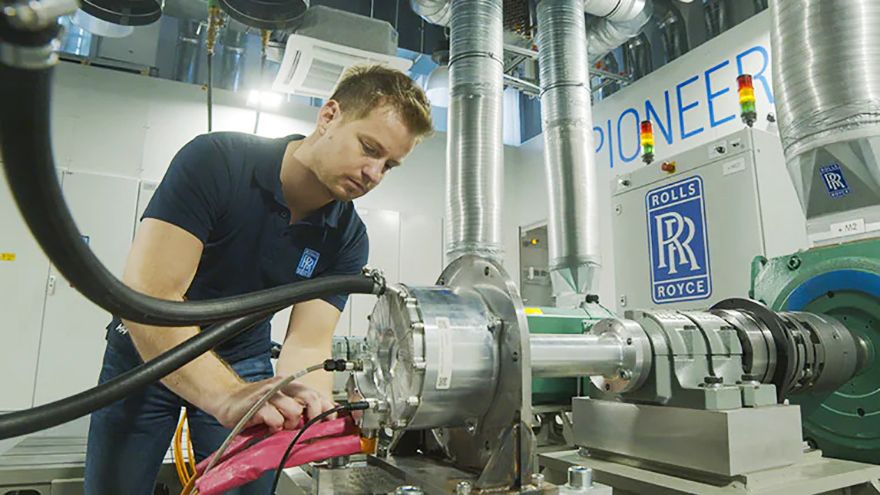 Rolls-Royce Hungary
Rolls-Royce Hungary in collaboration with the
Budapest University of Technology, has opened a new hybrid electric propulsion system laboratory which complements Rolls-Royce Electrical’s global test capability while supporting other Hungarian industry members and higher education in building the foundation for sustainable, electrical solutions of the future.
Electrical technology has the potential to transform travel and the transport of goods and the way energy is extracted and distributed and how power flows are managed in the future. Electrification will also have a significant role to play in the global fight against climate change. With electrical solutions on the rise, there is an increasing need for high-tech electrical machines, energy storage and special power electronics equipment — and for the possibility to test them in an advanced environment.
With around 100 engineers specialised in electric technology in Budapest, the Rolls-Royce Hungary team develops these solutions and together with the Budapest University of Technology has just launched a new test facility, the FIEK Modular Hybrid-Electric Drive Train Laboratory.
While the new laboratory complements already existing test capabilities, it is also available for other innovators in the region who want to develop their own electrical technologies further. It is also open to university students, who want to expand their practical experience working on electrical machine design.
Gergely György Balázs, managing director of Rolls-Royce Hungary, and associate professor at the university, said: “Investing in talent is crucial for us, in particular as we see our industry transition from research and development to actual product development. We need to work closely with academia to ensure we can locally source world-class electrical specialists, as we approach industrialisation of our electrical portfolio.”